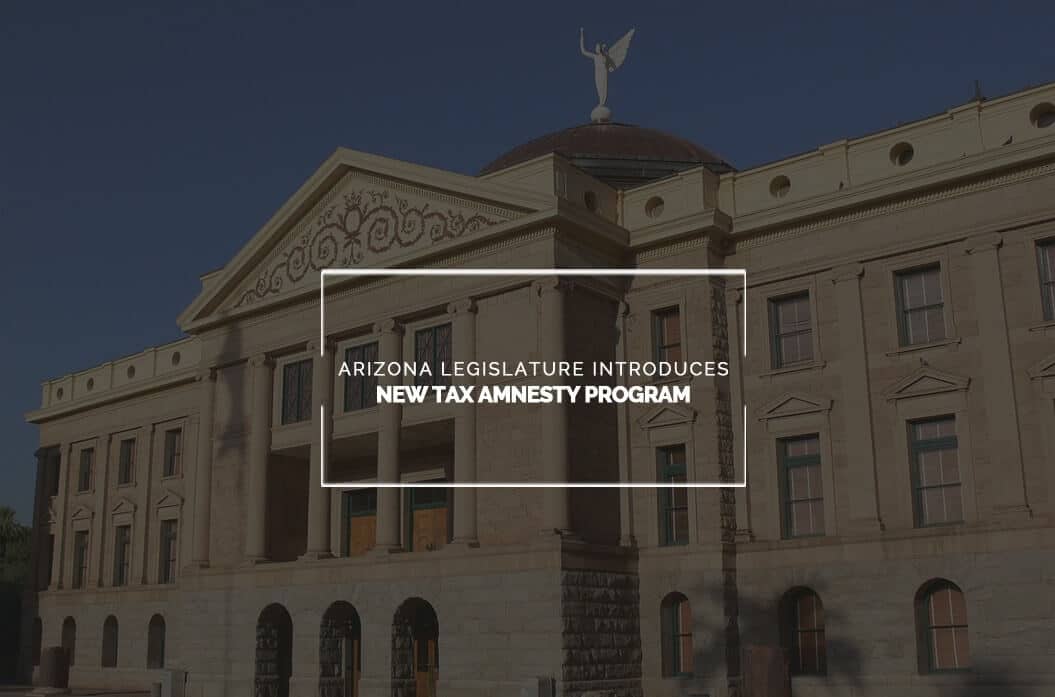These Tax Breaks May Have You Heading Straight for an Audit Audits don't just happen…
Bad things happen to the best of us. We come up short one year because we didn’t work as much or because we got injured and missed a lot of work while racking up a lot of medical bills. Or we just seriously miscalculate our tax liability and then don’t have the money to pay the balance at the end of the year.
If you don’t pay what you owe come tax time, you could end up paying a lot of interest and penalties. The longer you wait to pay, the more interest and penalties you’ll face, which will just compound your debt.
Sometimes, you may be able to lower your tax liability by working with a tax lawyer or a certified accountant. Your tax professional may be able to find ways to lower the tax you owe by finding you new deductions or credits, or your tax professional may be able to negotiate a settlement on your behalf that reduces your tax owed and/or penalties.

Last year, Arizona introduced an amnesty program that allowed citizens to pay the taxes they owed without worrying about the interest or other fines. As a result of that program, the state collected more than $55 million than it planned, which gave a needed boost to the economy.
Thanks to the success of the program, the state has decided to launch a new tax amnesty program for 2016. Here are the details:
The 2016 tax amnesty program has introduced one major change from the 2015 program: Taxpayers can choose to repay their tax liability in three installments rather than having to pay the entire sum in one payment.
Those who choose to pay the full amount must do so on or before Oct. 31 of this year.
Those who choose the installments must pay them according to this schedule:
Taxpayers who choose to do installments must make three payments. They cannot prepay the final payments. They can pay more than the minimum percentage for the earlier payments, but they cannot pay the balance in full before the final dates.
Each installment period starts on Sept. 1 of each year that the payment is due.
To apply for tax amnesty, you must fill out the application provided by the Arizona Department of Revenue and include the taxable period and the tax owed.
You must also include the return for that tax period, as well as any reports or supporting documents that were included. The Department of Revenue will review the information to verify the application.
If you have already received a billing notice for the tax owed, you must include that with the application also.
You must then indicate whether you plan to pay in full or want to make payments.
Not everyone can apply for the state’s new amnesty program.
In particular, those who are currently under criminal tax investigation, who have been subject of such an investigation in the past or who have been convicted of a tax crime are not eligible.
Those who have already reached an agreement with the Department of Revenue about their tax liability are also not eligible for the amnesty program. Those who are currently being audited are also not eligible.
Before you decide whether to apply for the amnesty program or conclude that you are not eligible, it is important that you talk with a tax professional who can give you guidance about your options. The Scottsdale tax attorneys at Silver Law PLC can help taxpayers understand their options and can provide assistance applying for amnesty if that is considered the best option. Our attorneys also represent taxpayers in audits, tax litigation, collection efforts, and other tax matters. Call us today to learn more about the amnesty program or to discuss your other tax relief options.
Published By:
7033 East Greenway Parkway, Suite 200
Scottsdale, Arizona 85254
Office: (480) 429-3360
Website: https://www.taxcontroversy.com
How Do I Handle a Criminal Tax Investigation By The IRS? Paying taxes is a…
Recent Injunctions Updates To Beneficial Ownership Reporting Requirements Breaking Down The Latest Changes To BOI…
What Should I Do If I Disagree With The Outcome Of An IRS Audit? Learn…
4 Tax Schemes From The IRS's "Dirty Dozen" List That Can Get The Average Taxpayer…